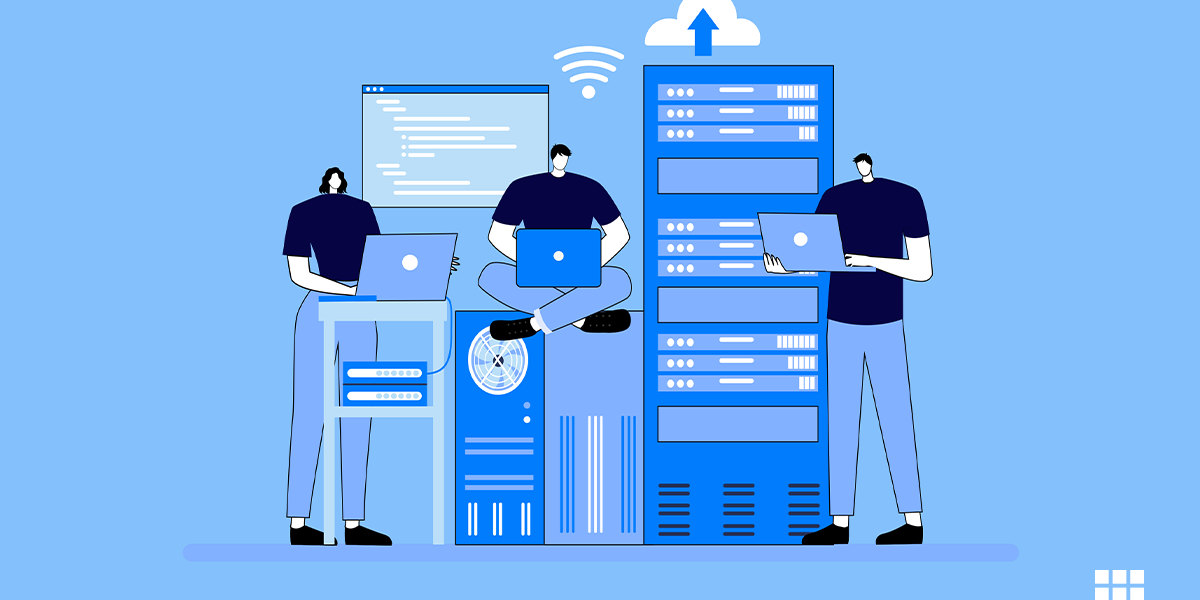
Welcome to our comprehensive guide on web hosting security best practices. In today’s digital landscape, where cyber threats are constantly evolving, it’s essential to prioritize the security of your website. By implementing the right measures, you can protect sensitive data, bolster your website’s reliability, and ensure a seamless experience for your visitors. In this article, we will explore seven essential practices to safeguard your website effectively. Let’s dive in!
Choosing a Trusted Web Hosting Service
The foundation of a secure website lies in selecting a reputable web hosting service. Look for providers that prioritize security and offer robust features such as SSL certificates, firewalls, regular backups, and malware scanning. Conduct thorough research, read customer reviews, and choose a host that aligns with your specific needs.
Keep Your Software Up to Date
Regularly updating your website’s software is crucial in maintaining a secure environment. This includes your content management system (CMS), plugins, themes, and any other applications running on your website. Outdated software can create vulnerabilities that malicious actors can exploit. Stay vigilant and apply updates promptly to ensure you have the latest security patches.
Implement Strong Password Policies
One of the simplest yet most effective ways to fortify your website’s security is by enforcing strong password policies. Encourage your users to create complex passwords containing a mix of uppercase and lowercase letters, numbers, and special characters. Additionally, consider implementing multi-factor authentication (MFA) for an added layer of protection.
Regularly Back Up Your Website
Backing up your website regularly is essential in mitigating the impact of potential security breaches or data loss. Choose a reliable backup solution that automatically saves your website’s files, databases, and configurations. Ensure backups are stored in secure off-site locations to guarantee data integrity and expedite recovery in case of emergencies.
Employ Website Firewalls
Website firewalls act as a shield against various online threats, such as DDoS attacks, SQL injections, and cross-site scripting (XSS). These security measures monitor incoming and outgoing website traffic, identifying and blocking suspicious activities. Invest in a robust web application firewall (WAF) solution to protect your website from unauthorized access and malicious intent.
Secure File Transfer Protocol (SFTP)
When transferring files to and from your website’s server, it’s crucial to use a secure protocol. Instead of traditional FTP, opt for Secure File Transfer Protocol (SFTP) or Secure Shell File Transfer Protocol (SSH FTP). These encrypted methods ensure that data transmissions remain confidential, safeguarding your website against interception and unauthorized access.
Regular Security Audits and Monitoring
Performing regular security audits and monitoring your website’s activity are vital components of an effective security strategy. Conduct thorough checks to identify vulnerabilities, such as outdated software, weak passwords, or suspicious user behavior. Consider utilizing security plugins or employing the services of a professional security firm to enhance your website’s defenses.
Frequently Asked Questions (FAQs)
1. How often should I update my website’s software?
Regular updates are crucial for maintaining a secure website. Aim to update your software, including CMS, plugins, and themes, as soon as new versions are released. Prompt updates ensure you have the latest security patches, minimizing the risk of potential vulnerabilities.
2. Can I perform backups manually?
While manual backups are possible, it’s recommended to use automated backup solutions. These ensure consistent and regular backups, reducing the chance of data loss. Automated backups also simplify the restoration process in case of emergencies.
3. Are website firewalls necessary for small businesses?
Absolutely! Website firewalls are essential for businesses of all sizes. Cybercriminals often target smaller websites, assuming they may have weaker security measures in place. Protecting your website with a firewall is a proactive step toward mitigating potential threats.
4. How can I detect if my website has been compromised?
Regular monitoring and security audits play a crucial role in detecting website compromises. Look out for unusual website behavior, unexpected file modifications, or unexplained server resource usage. If you suspect a compromise, contact a security professional to assess and rectify the situation promptly.
5. Are security audits a one-time process?
No, security audits should be conducted regularly to ensure ongoing protection. Cyber threats evolve rapidly, and new vulnerabilities may arise over time. By performing routine security audits, you can identify and address any emerging risks promptly.
Conclusion:
Safeguarding your website is paramount to protect your data, maintain your reputation, and provide a secure user experience. By following the seven essential practices outlined in this article, you can fortify your website’s security and minimize the risk of cyber attacks. Remember to choose a trusted web hosting service, keep your software up to date, enforce strong password policies, regularly back up your website, utilize website firewalls, implement secure file transfer protocols, and conduct regular security audits. By prioritizing web hosting security, you can enjoy a safe and reliable online presence.
Advertisement








